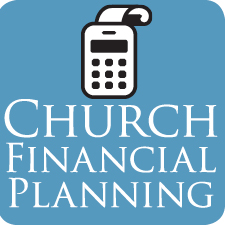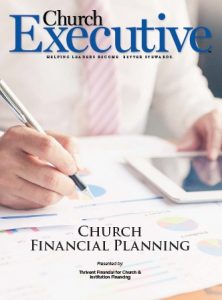
By Kari Boyce
 Amortization. Balloon payment. Adjustable rate.
Amortization. Balloon payment. Adjustable rate.
Do these terms have you feeling like Dorothy in Oz? (“Lions and tigers and bears! Oh my!”)
We often hear the complaint that lenders use too much “financial-speak,” and that churches just want an apples-to-apples comparison when they’re seeking to refinance. Unfortunately, the options are so numerous and varied that an apples-to-apples comparison can be very hard to achieve.
So, how do you know what will serve your church best for the long term? How do you evaluate the options?
The moving parts
 There are several key features to almost any church mortgage. If you know what each piece does, the differences make more sense when you start to combine them.
There are several key features to almost any church mortgage. If you know what each piece does, the differences make more sense when you start to combine them.
Let’s look at a few ways these moving parts can fit together. While many of us are familiar with a home mortgage, church mortgages are most similar to commercial mortgages.
Example 1: Neighborhood Community Church has a mortgage of $1 million with a 6% fixed interest rate, which is currently amortized over 20 years but matures in seven years. Monthly payments are about $7,164, and a balloon payment of about $774,752 at the seven-year maturity will need to be refinanced or paid in full.
Example 2: Friendly Fellowship has a mortgage of $1 million with a 3.5% adjustable interest rate, fixed for three years and also amortized over 20 years, maturing in 20 years. The monthly payment will be about $5,800 initially, but the rate will adjust on every third anniversary of the mortgage, and it is uncertain where rates will be at that time.
As you can see, the variable pieces make these two $1-million mortgages — both with 20-year amortizations — difficult to compare over the long term.
Adding to the confusion, fees and covenants and other terms of a specific mortgage loan add limitations, costs or more moving parts. This makes our comparison more kumquats-to-kangaroos than apples-to-apples.
Getting the best terms for your church’s situation

Lenders might evaluate your church differently, but there are some fairly universal points that will help you secure the most favorable interest rate and other terms. These are not “quick fixes”; in fact, some might take years to achieve. So, planning ahead is imperative.
Cash reserves to cover mortgage payments or all operating costs for a period of time. Some lenders might require reserves, but the timeframes vary. Recommendations generally range between three months and one year of expenses. In some cases, as much as two years of mortgage payments might be needed if the church has had recent financial challenges.
Clear financial statements. Many churches do not have annual independent audits — a best-case scenario. If not, ensure that your financial records have multiple, knowledgeable people participating in your financial management. Separation of duties not only protects the church, but also protects the individuals from temptation and suspicion.
The closer to standard accounting practices you are, the easier it will be for a lender to be comfortable with important issues, such as cash flow, balance sheet changes, and appropriate allocation of resources.
What do these loan terms mean?
Fixed-rate period refers to the length of time that the interest rate is set. At the end of the period, the interest rate changes.
A five-year fixed-rate period is most common among commercial lenders. Generally, loans with shorter fixed-rate periods have lower interest rates than those with longer fixed-rate periods.
Amortization refers to the amount of time it would take to repay the loan in full if equal monthly payments are made throughout the entire loan term. The length of the amortization period drives the monthly payment amount.
Term refers to the length of time from the closing of the loan to the maturity date of the loan when any outstanding balance must be repaid. When the term is shorter than the amortization, it results in a balloon balance.
Balloon Payment or Balance refers to the amount that will be unpaid and owing on the mortgage loan at the end of the term (maturity) when a mortgage loan does not fully amortize over the term of the loan.
For example, a loan with a 10-year term that is being paid using a 30-year amortization, will have a balloon payment due at maturity. That’s because monthly payments have been calculated as though the loan would be fully paid over those 30 years (the amortization period).
Maturity is the date the remaining principal and interest amount are due to be fully repaid.
Adjustable rate or variable rate loans have interest rates which change at set periods of time over the life of the loan. These loans are also referred to as Adjustable Rate Mortgages, or ARMs.
Mortgage is a document granting a security interest in specific real estate to the lender providing the loan, as collateral for the repayment of that loan.
Do the math. The lowest interest rate might not be your most important term. Yes, low interest rates are easiest to explain; however, fees and covenants can be restrictive to your ministry in the long run. Also, the length of time the rate is fixed, or you have to repay the mortgage, or if you have a balloon payment that will need to be refinanced in the future — all these might ultimately cost more, create more work and more uncertainty.
Can you prepay your principal balance if you have excess funds? Prepayment penalties are important to understand, as they are not all the same and can be significant.
Start talking to your lender early
You might think it’s too early in the process, but your lender can give you valuable insights for your own preparation, anticipated interest rate changes, and how long the process might take.
Like running a church, much of the process depends on relationship. Developing and maintaining relationships with financial entities that come alongside your ministry in support, advice and service can make your refinance process a surprisingly pleasant experience.
Kari Boyce leads Business Development at Thrivent Financial for Church & Institution Financing (Church Loans) in Minneapolis, MN. Church Loans currently serves more than 1,400 Christian churches across the United States.


